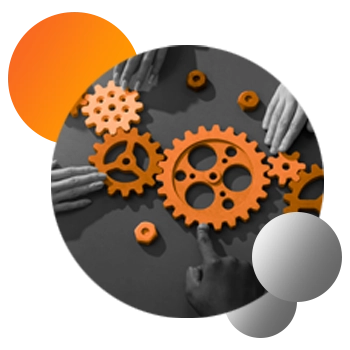When faced with an ERP upgrade, many organisations reluctantly opt to go ahead with it, despite the expense and risk involved. It seems to be a constant uphill struggle.
Why? Usually, it’s because they feel they need to remain in the vendor’s official support, and periodic upgrades are a prerequisite.
In this series, we’re looking at the five main options organisations have when deciding the future of their ERP systems:
- Migrating their ERP to the Cloud
- Switching to a SaaS solution
- Switching to a different ERP vendor
- Upgrading their ERP to the latest version
- Sticking with their existing ERP system
Today, we’ll focus on option number four: upgrades. Do you really need them?
Are upgrades really worth it?
Upgrading your ERP to the latest version can be tempting. There’s a natural perception that the newest version must be better than what you currently have. But ERP platforms aren’t like mobile phones, and upgrading doesn’t always mean better functionality or user experience.
Any time you’re faced with an upgrade, ask yourself a simple question:
Who does this upgrade really benefit?
New ERP versions usually add very little (if any) additional value and come with significant downsides. These include disruption of business functions, intricate testing cycles, process changes, user retraining, and potentially even hardware upgrades to support new system requirements. These are downsides that many organisations feel forced into accepting every four to five years just so they can remain supported.
There are, of course, times when upgrades are necessary to resolve issues/bugs or provide valuable new functionality. However, given the maturity of modern ERP platforms, these cases are increasingly rare.
Upgrading your ERP to the latest version
| Advantages | Disadvantages |
| – Access to new features – Bug fixes | – Total upgrade costs are usually very high, including project management, testing, retraining, and updating business processes – Hardware upgrades may be required – Critical services may be lost or altered – Can be highly disruptive to the business |
What about ERP support?
If you do decide to go ahead with an ERP upgrade, it’s important to consider your future strategy for support. Unless you move to a SaaS ERP platform, you have the opportunity to choose the support partner that best meets the needs of your business IF you decide to stick with this new version.
Third-party support providers offer higher quality support than official ERP vendor support. They also charge substantially lower annual fees. At any point (before OR after an upgrade) an organisation can choose to switch to third-party support and continue using its then-current ERP version.
Even better, it wouldn’t be forced into expensive ERP upgrades every few years to remain in support.
However, typically the main reason why organisations choose to upgrade their ERP platform is to remain in vendor support. If your policy is to always be running the latest version of your ERP system (irrespective of cost), third-party support will not be an option for your organisation.
Upgrading your ERP: Assessing your options
The prospect of upgrading your ERP system probably doesn’t fill you with joy. In fact, if we had to guess, we’d say it more than likely fills you with dread. So if you find yourself in the position of assessing your options, we want to help.
Recently, we published a guide designed to help organisations make informed decisions about the future of their ERP systems.
So if you find yourself…
- Worried about falling out of support if you don’t stay on the latest version
- Receiving pressure from your ERP vendor to move to its SaaS product
- Wishing you could stick with your current, stable ERP, but unsure if that’s a viable option
…we can help.
If for any reason your organisation is considering upgrading, moving, or switching up its ERP system, this guide is for you.








